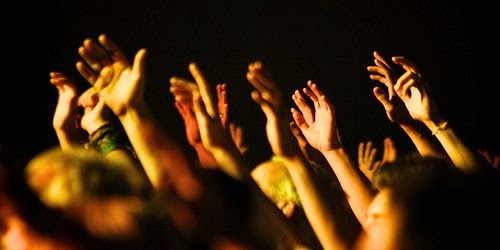Political culture is a specialized part or aspect of a whole culture, referring to the dominant or typical attitudes, values, and beliefs that are relevant to politics in any society. Culture refers to the widely shared rules, values, norms, cognition, and ways of life of the members of a particular social group. This includes cognitive orientations, “basic premises and sets of assumptions.They include empirical beliefs about what actually is happening in a society, generalized beliefs about the goals and values of that society, and beliefs and values that may be relevant to politics, even though they are not specifically political.
Common attitudes, values, and orientations include such things as what citizens typically expect from politics and the political economy; political and economic ideologies; how people habitually act politically, whether passively or as active participants; whether deferential or assertive behavior is common; and many other common behaviors and expectations. Thus people in each country tend to develop unique approaches to the inputs and outputs of their system; common feelings evolve, of trust or mistrust toward government and of support or hostility for political, social, and economic systems. Whether implicit or explicit, these widely shared styles, approaches, traditions, and stereotypes tend to be expressed in individual and group political thinking and behavior, helping to distinguish one system from another.
This attitudinal environment, in which every political system operates, affects and sets limits to that system as much as actual political institutions. As noted by Sidney Verba, political culture affects and helps to determine people’s interaction with other people: who talks to whom; what roles and attitudes of superiority or deference they may have; the nature of political processes; how formal institutions operate; how ideologies are interpreted in daily activities; and what the orientation of members of a political system is to the functioning and structure of that particular system’ Political culture provides clues to proper collective and individual behavior, as well as defining the content of specific roles and the relationship between roles. It can be a dynamic and changing concept if we emphasize mutual interaction and interdependence of values, factual knowledge, and everyday experience.
In a democratic system, dominant values may emphasize participation—the idea that common people are rational and intelligent enough to participate, that we can trust other citizens, that interest groups are legitimate, and that governors gain their privilege of governing and decision making only from the consent of the governed. Whether or not these values actually operate, they set limits to government and spell out relations between the governed and the governors that could not exist in traditional political cultures.
The Features of Political Culture
Obviously, attitudes affect politics. Where they are supported by political and economic institutions they can be conducive to stability. Where they clash with new or changing institutions, or where older values, such as the primacy of self-help, clash with new realities. such as an urbanized, industrialized, highly interdependent economy, psychic dislocation and civil strife will result.
Political culture and political socialization are related to each other. Political culture provides the environment within which socialization occurs. Political culture may be viewed as the “macro” level, the sum total of values, attitudes, and orientations that affect politics and political behavior. Political socialization may be viewed as the “micro,” or individual, level “as the acquisition by an individual of the political culture which surrounds him.”, Political culture and political socialization interact, with dominant political values largely determining the content of political socialization.
While the process of successful socialization helps maintain and transmit the political culture. When culture and socialization are similar, political stability usually results. Where they diverge and disagree, the likely result will be political instability unless there is widespread agreement on the desirability of changing dominant values.

